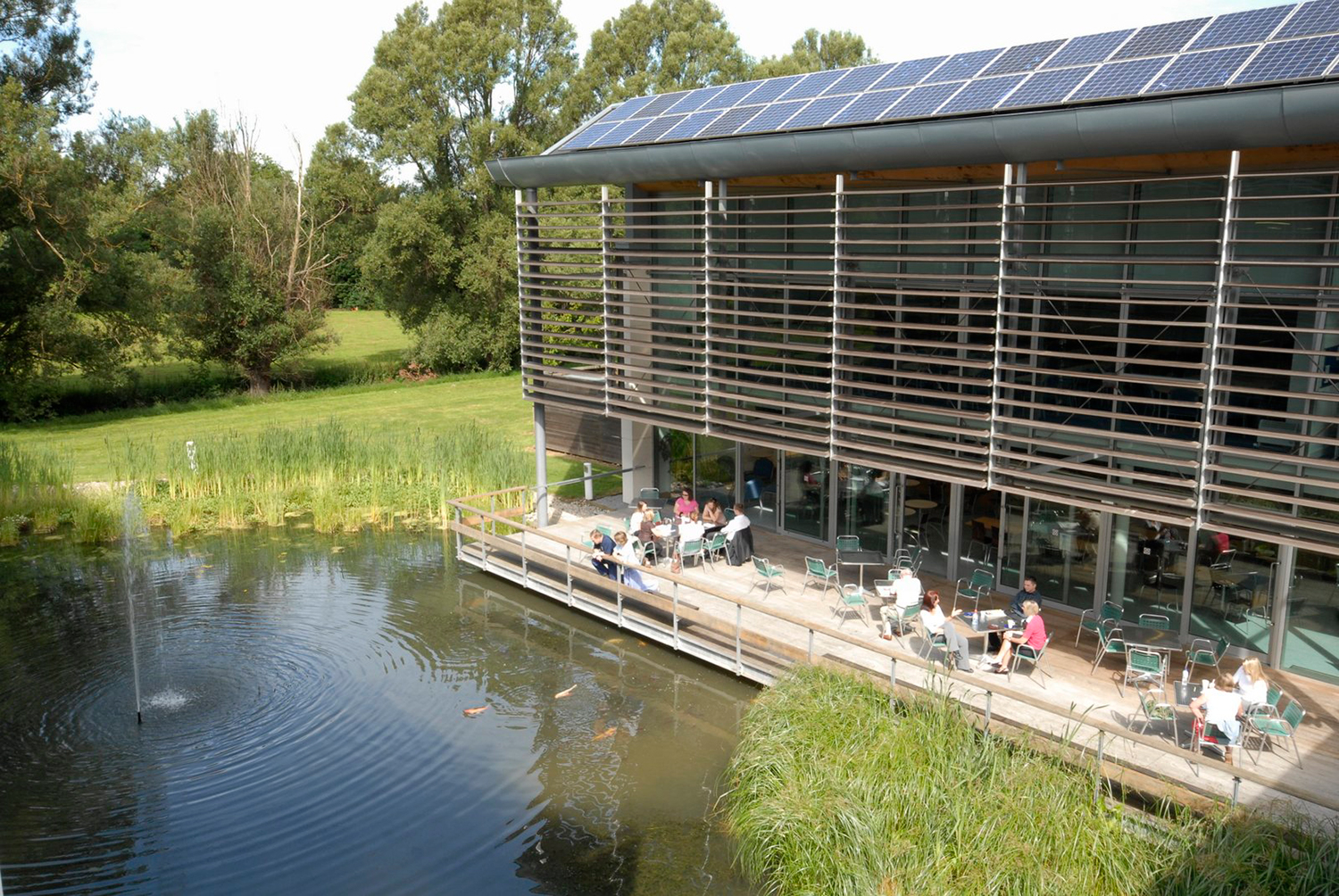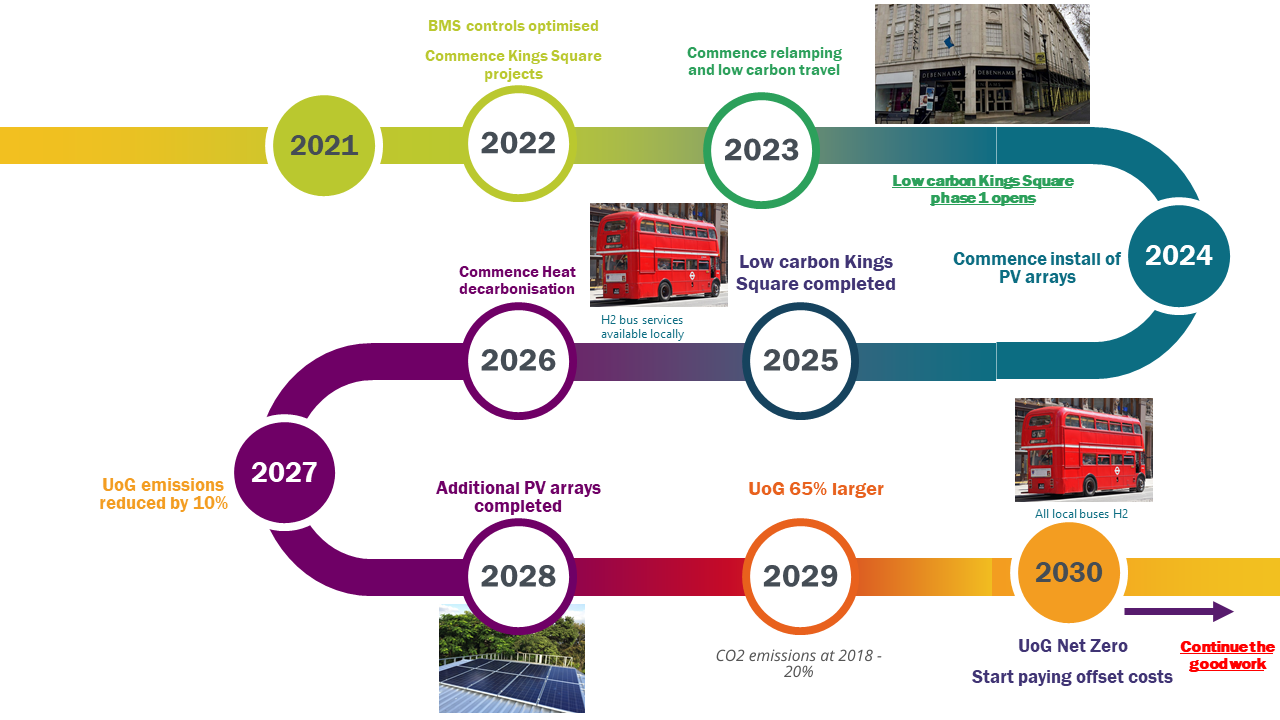Energy and carbon
We’re going Net Zero by 2030
As a multi-site organisation we hold an important responsibility in tackling climate change and we’re working to reduce our carbon footprint across the estate. We have been committed to reducing our carbon emissions for many years and in 2021, released our Carbon Net Zero Strategy 2021-2030. It is the critical operational sustainability issue in the University’s Strategic Plan 2022-2027, evidencing our commitment to minimising environmental impact in response to accelerating climate change.
Our previous carbon strategy (2010-2020) achieved a 47% drop in emissions by 2019 that rose to 63% by 2020 – surpassing its target of 40% by 2020.
A Net Zero taskforce of staff and student representatives, including our Trade Unions, oversees the progress of this strategy. See latest minutes here.

What is our energy usage and why is it important to reduce it?
One of the most significant ways we can reduce our environmental impact is to reduce our carbon footprint. To calculate and monitor the size of carbon footprints (with a view to minimising it as much as possible), carbon emissions are classified into three scopes.

SCOPE 1
This covers the emissions that we produce directly, such as from gas and oil combustion for heat and hot water.

SCOPE 2
This covers the emissions that we produce indirectly such as through purchasing grid electricity.

SCOPE 3
This covers all other indirect emissions from activities such as transport, purchasing, waste and water use.
We need to drive action to minimise the most harmful levels of climate change, in line with scientific advice. The Paris Agreement aims to limit global warming to 2°C above pre-industrial levels or ideally 1.5°C. The UK committed to cut at least 55% in greenhouse gas emissions by 2030 compared to 1990 levels.
By aiming for Net Zero carbon, we are seeking a balance between the carbon we emit and the carbon we take out of the atmosphere. It means we drive down our emissions as much as possible – leaving the minimum remainder to offset.
Our progress to Net Zero
- With funding from the Salix Public Sector Decarbonisation Scheme (PSDS2), replacement heating systems installed at FCH and Oxstalls campuses in 2022 will save around 260 tonnes of carbon annually.
- We achieved BREEAM excellent certified for our refurbished Pittville Student Village opened in 2017 and our Business School building completed in 2018, and are working towards the same for our new City Campus.
- We have fully divested from fossil fuels across our investment portfolio which took immediate effect from May 2018.
- Our Business School development is zero emissions and uses four air source heat pumps for all its heating, eliminating the use of fossil fuels in the building.
- Over the last ten years we have reduced electricity use by 32% and gas by 37%.
- One third of our service vehicles used across our campuses vehicles are now electric.
- We are improving our energy management and upgrading our building management systems to improve energy efficiency across our campuses funded by Salix grants.
- We are moving to lower energy use in our IT systems such as cloud computing and greater deployment of flexible learning technology.
Roadmap to Net Zero 2021-2030

